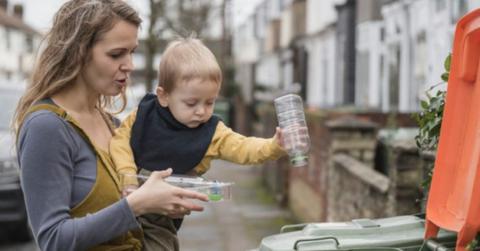
A New Era for Sustainability: How Technology and Collaboration Are Redefining Recycling
The world is at a tipping point when it comes to sustainability. With mounting pressure to combat climate change and reduce waste, industries worldwide are rethinking how resources are used and reused. Central to this shift is the push toward a circular economy, where materials are no longer discarded but repurposed and reintegrated into production cycles. At the heart of this transformation is a surge in technological innovation and global collaboration — two forces that are revolutionizing the recycling landscape.
Why Recycling Needs a Revolution
Despite decades of effort, the global recycling system remains fragmented and inefficient. Regulations vary widely from country to country, leaving companies to navigate a patchwork of rules. Meanwhile, much of the world’s waste continues to end up in landfills or incinerators, with only a fraction being effectively recycled. This disconnect has sparked a movement to create more transparent, accountable, and scalable systems to handle the materials of modern life.
Advances in technology, like blockchain and artificial intelligence, are making it possible to track materials throughout their lifecycle. This ensures not only that they are recycled properly but also that companies can prove their sustainability efforts — a growing demand from investors, consumers, and governments alike.
From Linear to Circular: The Shift in Thinking
The traditional “take, make, dispose” model of production is giving way to a more sustainable approach. In a circular economy, materials are designed to stay in use for as long as possible. This isn’t just about recycling; it’s about rethinking how products are made, used, and disposed of. Companies are now investing in systems that allow them to monitor their materials, from raw inputs to end-of-life disposal, ensuring they are recaptured and repurposed.
One standout example is the concept of “digital twins,” where physical objects are paired with a digital record that tracks their origin, composition, and journey through the supply chain. Security Matters (SMX), a company making waves in this space, has developed technology that creates such digital records, allowing companies to verify their ESG goals and ensure compliance with global recycling standards.
Incentivizing Change
Governments and businesses alike are exploring new ways to encourage participation in the circular economy. Tradable credits, like SMX’s Plastic Cycle Token (PCT), offer financial incentives to companies that invest in sustainable practices. These systems reduce reliance on traditional taxes or quotas, shifting the focus to market-driven solutions that reward innovation.
This approach is already showing promise. By incentivizing companies to recycle and reuse materials, these credit systems are helping to align economic growth with environmental responsibility — a critical step in scaling sustainable practices globally.
The Role of Global Partnerships
Collaboration is key to addressing the global nature of recycling challenges. Countries like Brazil, which are rich in natural resources, are partnering with technology leaders to implement sustainable practices on a large scale. These partnerships are driving the creation of circular supply chains that can serve as models for other regions.
For instance, SMX recently announced a partnership in Brazil to mark and trace natural rubber. This not only ensures the rubber is sustainably sourced but also demonstrates the power of international cooperation in tackling environmental challenges.
The Bigger Picture
The transition to a circular economy is about more than just recycling—it’s about reimagining how we interact with the world’s resources. By adopting technologies that provide transparency and accountability, companies can play a pivotal role in this transformation. But technology alone isn’t enough. Governments, businesses, and consumers must work together to create systems that prioritize sustainability at every stage of production and consumption.
The stakes couldn’t be higher. With the global population continuing to grow and resource demands increasing, finding sustainable solutions is not optional — it’s essential. Fortunately, innovations in material tracking, blockchain, and AI, coupled with global collaboration, are providing the tools needed to meet this challenge.
As the world shifts toward a more sustainable future, companies like SMX are showing what’s possible. By embracing innovation and building partnerships across industries and borders, they’re proving that sustainability isn’t just a goal — it’s a reality we can achieve together. The era of circular economies has arrived, and with it, the promise of a cleaner, greener, and more resilient world.
